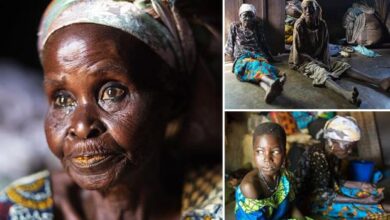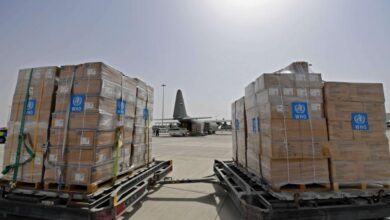Akufo-Addo calls for partnership to support 2nd phase PFJ

Akufo-Addo calls for partnership to support 2nd phase PFJ
President Nana Addo Dankwa Akufo-Addo has appealed to international partners operating within the agriculture space to align their respective policies with those of the government.
He said despite the productive collaboration that had taken place between the government and friends of Ghana over the years, the misalignment of priorities between the policies of certain international development agencies and their national policies and strategies continued to be a matter of concern.
“Government is concerned by this because projects designed by foreign governments to support Ghana’s agriculture should naturally align with the government’s priorities,” he said.
The President made the appeal at the presidential breakfast meeting with development partners on the second phase of the government’s flagship agriculture programme Planting for Food and Jobs (PFJ 2.0) in Accra yesterday.
He said any deviation from aligning this support with the policy of the government could amount to the misdirected investment in the country.
“This platform thus provides an opportunity for all of us to identify the factors causing this disconnect and take corrective measures. Furthermore, we should also address the unwelcome situation that government, through its agencies such as the Ministry of Finance and Ministry of Agriculture, has no foreknowledge of some funds being employed in the country by international development agencies,” he added.
President Akufo-Addo said it was important to acknowledge that the challenges confronting the country’s agriculture were multifaceted, especially in relation to available funding sources.
He said to achieve optimal results, there was a pressing need for effective alignment, minimising the risk of duplication and eliminating the lack of knowledge by the government of projects by international development agencies.
“Instead, we should constantly adopt a coherent approach that promotes collaboration; dialogues like the one we are having here today are essential and it should be a regular occurrence providing avenues to discuss challenges, successes and ensure increased collaboration in the execution of current and future agricultural development plans in Ghana,” he stressed.
Nana Akufo-Addo said even though avenues for such dialogues existed, it was important that they were utilised more effectively.
The President noted that with the introduction of the second phase of the PFJ and the ambitious goal of transforming significantly Ghana’s agriculture by fully unlocking the sector’s potential, the urgency of resource mobilisation was of the greatest necessity.
“This is where friends of Ghana can play a critical role in helping to fulfil their mandate to complement the government’s effort. I also expect discussions on funding mechanisms such as loans, grants, technical assistance and other agriculture support initiatives in this mobilisation efforts,” he emphasised.
President Akufo-Addo said with such collaboration under the PFJ phase 2, Ghana would achieve enhanced food security over the next five years.
The Deputy Country Representative of the Food and Agriculture Organisation, Dr Yasmi Yurdi, said development partners were delighted with the attention which the agriculture sector was receiving at the highest level of government in Ghana.
He said the world was not on track in its effort to end hunger, food insecurity and malnutrition.
He said the lingering impact of COVID-19 pandemic had aggravated existing food security challenges, disrupting supply chain and reducing income for farmers.
Dr Yurdi, who doubled as the Agric Sector Lead for the Development Partners Working Group, said soaring food and fuel prices, currency devaluation and other economic disruptions had made it difficult for households to afford adequate food, leading to hunger and malnutrition.
He said the continued rise of conflicts and various forms of extremism, climate change and economic shocks combined with the high cost of nutritious foods and growing inequities were the primary drivers behind growing food insecurity and malnutrition.
He said the second phase of PFJ was coming at a critical time and the meeting demonstrated walking the talk, adding that “The prospects for accelerated transformation of the economy lie in the opportunities that exist in agriculture for food security, import substitution, agro-industrial raw materials for agro-processing, light manufacturing and export which PFJ 2.0 promotes.”
He said the PFJ was geared towards job creation, livelihood development, enhanced food security and economic transformation. As such, it must be driven with transparent structures and regulatory framework to achieve its laudable goals.








